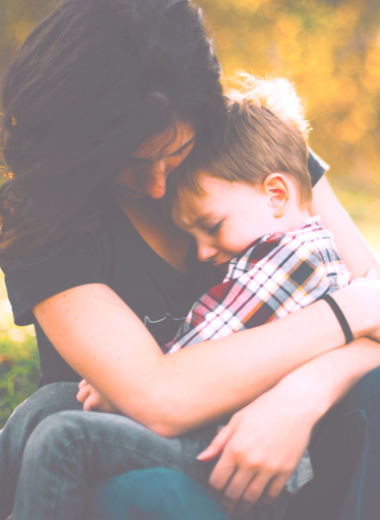As a parent I know how important it is to be able to read your child’s signs. While you may have been able to know what each cry was asking for when your child was a baby, knowing what is at the root of distraction and agitation now that they are a much older and more complex being, is another animal altogether.
Even if you do have a pretty good sense about whether your child might be wrestling with a fear-based school, social, or general anxiety, or the more neurobiologically-based ADHD, knowing if both are co-existing and how to meet your child’s needs around all of the symptoms accurately and adequately….is simply not simple.
My hope is that you won’t expect yourself to figure it all out on your own, since we all know how the saying goes about the village it takes to raise a child. And may the following nuggets of guidance help you weave your way toward understanding the distinctions between anxiety and ADHD, where their crossover lies, and some ways in which you can intervene on the home front to provide some support.
How do I know if it’s ADHD or anxiety?
- Key into clues about whether incomplete tasks are due to anxious perfectionism or to impulsivity-based distractedness (related to ADHD).
- Notice if instances of impulsivity happen often and even when situations are calm and safe, which would indicate ADHD.
- Ask about any worried thoughts that happen for your child…these are often the foundation for an anxious restless and focus-less child.
- Ask or notice if your child is showing a collection of physiological or physical signs of anxiety (such as nausea, tense muscles, increased heart-rate, and sweating); these are not going to show up in such a clear and collective way if only ADHD is present.
- You may notice more social concerns coming from your child when they are dealing with anxiety moreso than with ADHD, since anxiety, and not ADHD, lends itself to an increase in sensitivity to social cues.
Why is it that ADHD and anxiety can look so similar?
- Both ADHD and anxiety result from decreased and changed activity in the pre-frontal cortex (PFC), which is a place of high-level thinking. Consider the PFC like the control center of the brain, and one of the main reasons we are so distinct in our behavioral capabilities in comparison to other animals. The PFC enables us humans to engage in a great deal of planning, organizing, concentrating, and self-control.
- The reasons why the PFC goes “offline” when anxious and when ADHD is present are different. This is important because it means that treating them will require us to be on the lookout for different things and to use somewhat different responses.
What can I do about my child’s symptoms?
- Although the supports for anxiety and ADHD should be different, daily mindfulness and exercise activities create a powerful duo in combating symptoms of both. This is because these activities target executive functioning and sensorimotor processing, which are key to bringing the PFC back “online” and integrating mind and body for managing the present moment effectively.
- There are a few online sites that I recommend to many of my clients, such a GoZen and GoNoodle. They provide exercise and relaxation activities to help a variety of symptoms related to both diagnoses. Intuition Wellness Center offers a few online resources that focus on breathing and mindfulness that you might find helpful, too.
- I often also recommend Me Moves and Brain Gym for kids who experience symptoms of ADHD.
- Games that hone the different aspects of attention will help “train” the ADHD brain so that it can settle into a focused state and complete tasks effectively. Good examples of such programs can be found on the ADDitude online magazine website.
- Whether managing ADHD or anxiety, organizing the home and school environment is key to helping your child succeed. Set routines, preparation for what is coming next, and setting up work, play, and relaxation stations at home are all valuable factors in this equation.
- Often ADHD, as well as more severe forms of anxiety, are treated with psychotropic medication. An evaluation with a medication provider can help answer your questions and concerns about the pros and cons of this aspect of treatment.
- A psychological evaluation is one of the best ways to determine if ADHD and/or anxiety is at the root of the symptoms you are seeing in your child. Importantly, a formal evaluation by a trained specialist can allow your child to receive the supports they need both at home and at school, owing to the diagnosis and list of recommendations (specific to your child’s strengths and areas of need) that come out of this.
To learn more about what might help you and your child in navigating attention and restlessness related challenges, please join me for our Parents’ Heart-to-Heart education series about this very topic, on Tuesday August 21, 2018, from 7-8:30pm.
REGISTER NOW for our Parents’ Heart-to-Heart on “Your Inattentive & Restless Child.” Tuesday, August 21, 2018 from 7pm-8:30pm
At Intuition Wellness Center we specialize in integrated behavioral health services and wellness programs for children, young adults and families and supporting other like-minded professionals in doing good work. We offer parent education seminars, wellness classes and other supportive services. If you think you would like some extra support, call us. Call 520-333-3320 for a free phone consultation.
Written By: Lindsay Lennertz, PsyD; Clinical Psychologist at Intuition Wellness Center


